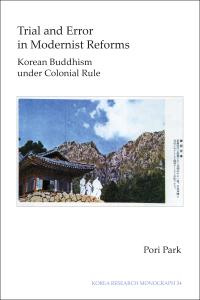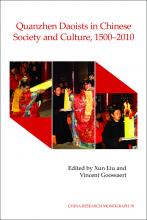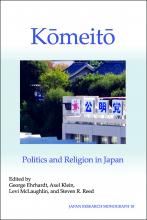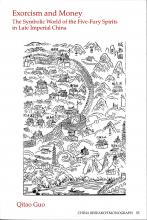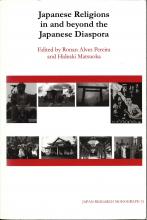Trial and Error in Modernist Reforms
Trial and Error in Modernist Reforms
Pori Park
This book examines the Korean Buddhist reform movement and how the modern construct of Buddhism developed under colonial rule. After the anti-Buddhist policies of the Chosŏn, under Japanese occupation Korean Buddhists had an opportunity to revive their religion. This era's modernist reforms underwent negotiation of such issues as the secularization of clerics and the colonial regime's control over the sangha with the Temple Ordinance. Also discussed are the influence of Christianity and Japanese Buddhism, as well as several key reformers.
As a nonprofit academic press, we need your support to publish our books. Your gift can help us make more of our titles available as e-books. DONATE NOW
Title information
This book examines the Korean Buddhist reform movement and how the modern construct of Buddhism developed under colonial rule. Park argues that Korean Buddhists reconstructed Buddhism as socially active and nationally viable by responding to, negotiating with, and resisting the influence of Western modernity and the Japanese colonial government. The need to survive led to an expansion of Korean Buddhism into social realms; simultaneously, the new enterprise created difficulty in maintaining monastic traditions. This situation provides a case study of Buddhist adaptation and struggle to develop forms of "modernity" in a colonial context.
Pori Park
Pori Park is associate professor of religious studies at Arizona State University. Her research examines the intersection between Buddhism, colonialism, modernity, nationalism, and globalization. She is the author of Trial and Error in Modernist Reforms: Korean Buddhism under Colonial Rule (IEAS, 2009).
Ph.D., East Asian Languages and Cultures, University of California, Los Angeles
Trial and Error in Modernist Reforms (KRM 34)
Acknowledgments – vii
Introduction – 1
- 1. Rebound: From Oppression to Emulation of New Models – 14
- 2. Caught In-Between: Korean Reactions to Japanese Buddhism and Colonial Policies on Buddhism – 34
- 3. Modernizing Buddhism: Buddhist Reforms before the March First Movement – 48
- 4. Confusion, Compromise, and Resistance: Buddhist Reforms after the March First Movement – 69
- 5. A Vision for Social Salvation: Han Yongun's Integration of Sŏn and Kyo – 94
Epilogue – 118
Appendix 1: Major Events in Modern Korean Buddhism and Chronology of Han Yongun's Life – 126
Appendix 2: Table of Contents of the Treatise on the Reformation of Korean Buddhism (Chosŏn Pulgyo yusillon) – 130
Appendix 3A: Table of Contents of the Great Texts of Buddhism (Pulgyo taejŏn) – 131
Appendix 3B: Table of Contents of the Holy Texts of Buddhism (Bukkyŏ seiten) – 134
Bibliography – 136
Glossary-Index – 148
|
JOURNAL REVIEWS |
|
"The book is well-documented and written in a manner that permits readers to easily follow the argument. Trial and Error in Modernist Reforms is the first book-length publication on modern Korean Buddhism in English and is recommended for courses on Korean Buddhism, Korean history, East Asian Buddhism, and international relations. Anyone who is interested in the evolution of Korean Buddhism during the turbulent period of the late nineteenth to the early twentieth centuries will definitely benefit from reading this book." ~Jin Y. Park, American University, in Journal of Korean Religions (http://www.jstor.org/stable/23943388) |
|
"Park takes on the breadth of historical events in Korean Buddhism during the colonial era and examines many of the key issues, problems, and dilemmas that it encountered. She avoids tendentious nationalistic rhetoric that blames all the problems of Korean Buddhism on the Japanese and instead grants Korean Buddhists more agency. Park insightfully brings to light the problems not necessarily ascribable to colonialism but inherent in Korean Buddhism throughout its premodern and modern history." ~Hwansoo Kim, Duke University, on H-Net Reviews in the Humanities & Social Sciences (http://www.h-net.org/reviews/showrev.php?id=31201) |

